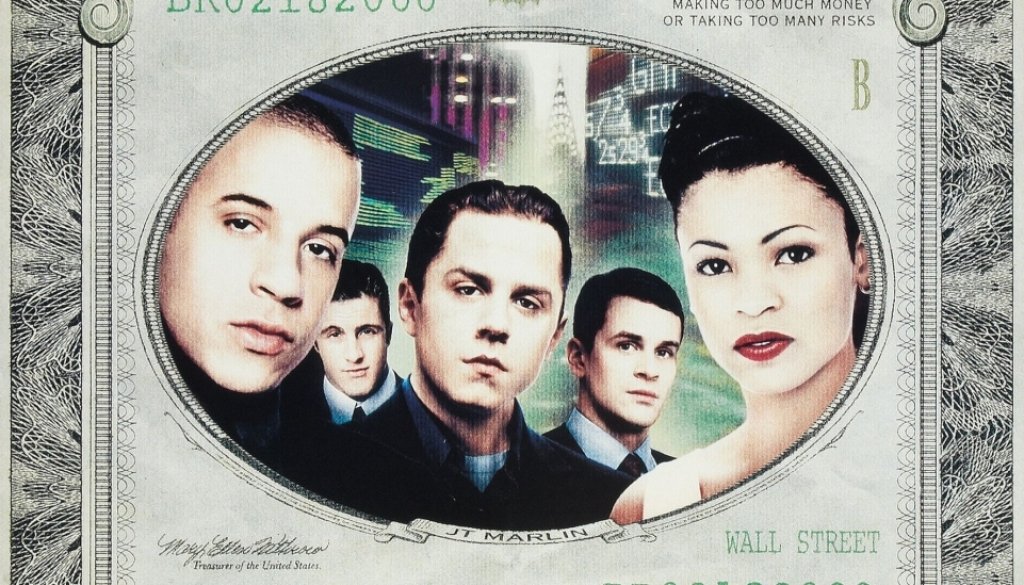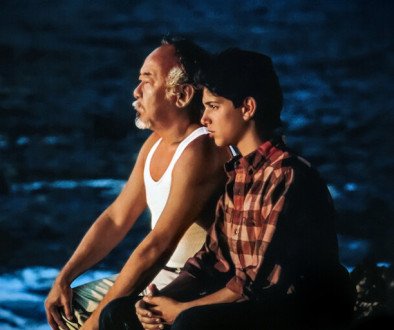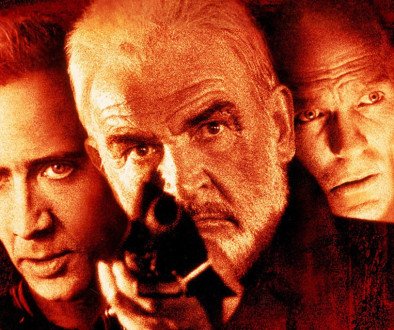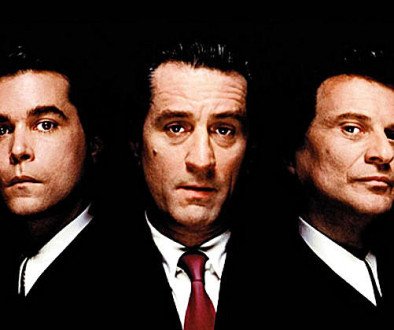The Movies That Moved Me: Ben Younger’s BOILER ROOM
Boiler Room is the story of a college dropout living in Queens and running an illegal casino, who then gets roped into becoming a stockbroker for a dodgy Long Island investment firm. Wedged between trying to make his father proud and the precipice of right and wrong, it’s only a matter time until Seth will have to make the most important decision of his life, before the law closes in.
This wasn’t exactly a film I thought I’d ever bring up on this platform, but it’s a film etched well into my memory banks since my teens. I think one of the first times I saw it was back in high school when our Economics teacher brought the film in for our enjoyment, and I think she fast-forwarded the VHS through some of the racier parts – it probably wasn’t until years afterward that I took interest in renting the tape without a filter. I’d already been used to R-rated films anyway, so I was desensitized, as was virtually any kid my age who’d been cussing from K through 12 and wore a different face around our parents. Cheeky, yeah.
There’s certainly no question that a film like Boiler Room hasn’t aged well in terms of language and content. As a “product of its time,” Younger’s script invites you with an eyeful into a seedy white collar underworld, host to a toxic bro culture where financial success, crooked dealing, and casual racism go hand-in-hand. More pointedly, it’s a world where lead actor Giovanni Ribisi’s character, Seth, gets caught up in an effort to compensate for being a failure in his father’s eyes, hungry for his love and respect regardless of how intense and terse things got.
Co-stars Scott Caan, the late Nicky Katt, Jamie Kennedy, Ben Affleck, and Tom Everett Scott, and even Pitch Black prospect Vin Diesel bring some of the strongest performances of their careers here as the seniors of the firm, alongside Ron Rifkin who plays Seth’s father, and Nia Long who plays love interest, Abbie.
I also think the film’s soundtrack is pertinent to its identity at the time, particularly with the prevalence of Hip-Hop in independent films, particularly at a time when films like Gridlock’d and Ghost Dog: Way Of The Samurai were still hits with the niche. To add, the proliferation of Eminem as the latest white face in front of hip-hop, I think, contributed amply to the potency of a story like Boiler Room with a protagonist trying to thrive just short of white trash poverty, and with an opening monologue that certainly pulls you in for the fullride:
I read this article a while back, it said the Microsoft employs more millionaire secretaries than any other company in the world. they chose stock options over Christmas bonuses. It was a good move. I remember there was this photo of one of the groundskeepers standing next to his Ferrari. You see shit lke this, and you just can’t see. Makes you think its possible even easy. And you turn on the TV and there’s just more of it. The eighty-seven million dollar lottery winner. That kid actor who just made twenty million on his last movie. The Internet stock that shot through the roof. You could have made millions off it if you just got in early. And that’s exactly what I wanted to do. Get in. I didn’t want to be an innovator. I just wanted to make the quick, easy buck. I just wanted in. The Notorious B.I.G. put it best. “You’re either slingin crack rock, or you got a wicked jump shot.” Nobody wants to work for it anymore. There’s no honor in taking that after-school job at Mickey-D’s. The honor’s in the dollar, kid. So in the whiteboy way of slingin crack rock, I became a stockbroker.
Head over to JustWatch for all available and legal viewing options for Boiler Room.
Native New Yorker. Been writing for a long time now, and I enjoy what I do. Be nice to me!





